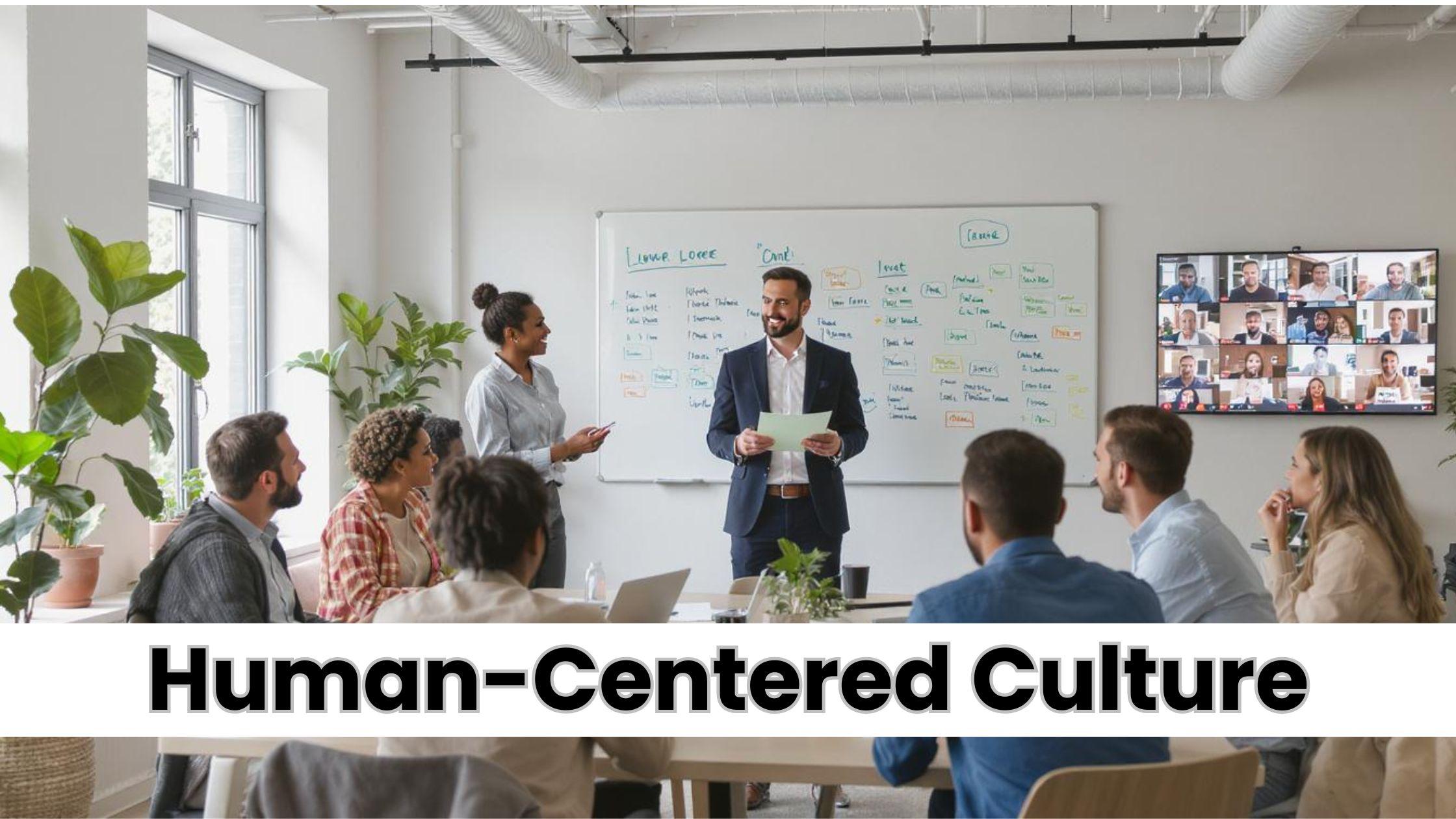Human-Centered Culture: Core of Workplace Agility

In an increasingly dynamic business environment, organizations must embrace agility to remain competitive. At the heart of this transformation is a Human-Centered Culture. By prioritizing employee well-being, engagement, and empowerment, organizations create a workforce that is resilient, adaptable, and innovative. Agility is not simply a process or methodology; it is the natural outcome of a culture that values people, fosters collaboration, and encourages proactive problem-solving.
Defining Workplace Agility
Workplace agility is the ability of an organization to anticipate, respond, and adapt quickly to changing circumstances while maintaining high performance. Unlike rigid structures, agile organizations can pivot efficiently, innovate continuously, and remain resilient under pressure. Human-Centered Culture ensures that employees are equipped, motivated, and empowered to respond effectively to challenges, making agility a sustainable aspect of the organizational ecosystem rather than a temporary initiative.
How Human-Centered Culture Supports Agility
Human-Centered Culture emphasizes empathy, inclusivity, and trust. Employees who feel respected and valued are more likely to embrace change, take initiative, and collaborate across teams. This culture fosters ownership and accountability, which are essential for agility. By centering strategies and processes around employee experiences, organizations enable agility to emerge organically, ensuring that adaptation and innovation are embedded in daily operations.
Leadership Driving Human-Centered Agility
Leadership is a critical factor in embedding Human-Centered Culture within agile workplaces. Leaders must demonstrate transparency, empathy, and adaptability, creating an environment where employees feel safe to innovate and share ideas. By supporting professional growth, providing clear communication, and recognizing contributions, leaders cultivate trust and collaboration. Agile leaders encourage experimentation, learning from failures, and decision-making at all levels, reinforcing a culture of human-centered agility.
Collaboration as a Pillar of Agility
Collaboration is essential to sustaining workplace agility, and Human-Centered Culture strengthens it by fostering psychological safety and mutual respect. Employees who feel included and valued are more willing to share knowledge, provide constructive feedback, and work collectively toward solutions. Cross-functional collaboration breaks down silos, accelerates problem-solving, and enhances innovation. A culture that prioritizes human connections ensures that agility is pervasive across teams and functions.
Psychological Safety Enhancing Agility
Psychological safety allows employees to take risks, voice opinions, and challenge assumptions without fear of negative consequences. Human-Centered Culture makes psychological safety a priority, enabling teams to experiment, learn from mistakes, and iterate quickly. This safe environment fosters adaptability, creativity, and responsiveness, which are core to workplace agility. Employees who feel secure are empowered to take initiative, driving innovation and organizational resilience.
Continuous Learning and Development
Agility requires employees to continuously adapt and develop new skills. Human-Centered Culture promotes lifelong learning by providing access to training, mentorship, and professional growth opportunities. Employees who feel supported in their development are more confident, versatile, and capable of navigating change. Embedding continuous learning within the culture strengthens workforce agility and prepares organizations to meet current and future challenges effectively.
Employee Engagement Driving Agility
Employee engagement is closely linked to agility. Engaged employees are motivated, proactive, and open to change. Human-Centered Culture enhances engagement by aligning organizational objectives with personal values, recognizing achievements, and fostering a sense of purpose. High engagement levels result in increased collaboration, innovation, and adaptability, enabling organizations to respond quickly and effectively to emerging opportunities and challenges.
Remote and Hybrid Work Agility
Remote and hybrid work models have created new challenges for workplace agility. Maintaining engagement, collaboration, and productivity across distributed teams requires a Human-Centered Culture. By emphasizing trust, communication, and employee well-being, organizations ensure that employees feel connected and empowered regardless of location. Agility is strengthened when teams are supported and motivated, leveraging technology while maintaining human-centric practices.
Innovation Through Human-Centered Agility
Innovation is a natural outcome of Human-Centered Culture. Employees who feel valued and supported are more likely to propose creative solutions and experiment with new approaches. Agile workplaces embrace iterative processes where ideas are tested, refined, and implemented rapidly. Human-Centered Culture nurtures an environment where innovation thrives alongside adaptability, keeping organizations competitive and responsive to market dynamics.
Measuring the Effectiveness of Human-Centered Agility
To understand the impact of Human-Centered Culture on agility, organizations can track employee engagement, retention, innovation outcomes, and project success rates. Feedback loops, surveys, and performance analytics provide actionable insights into how culture drives adaptability and responsiveness. By continuously measuring and refining strategies, organizations can reinforce practices that enhance Human-Centered agility, ensuring long-term success.
Preparing for Future Challenges
The future of work demands resilience, flexibility, and continuous innovation. Human-Centered Culture will remain a cornerstone of workplace agility as organizations navigate technological advancements, market disruptions, and evolving employee expectations. While digital tools can enhance efficiency, human creativity, empathy, and collaboration are essential for sustaining long-term agility. Organizations that integrate people-first strategies with technology are better positioned to thrive in a rapidly changing business landscape.
Read Full Article : https://bizinfopro.com/blogs/hr-blogs/why-workplace-agility-begins-with-human-centered-culture/
About Us : BizInfoPro is a modern business publication designed to inform, inspire, and empower decision-makers, entrepreneurs, and forward-thinking professionals. With a focus on practical insights and in‑depth analysis, it explores the evolving landscape of global business—covering emerging markets, industry innovations, strategic growth opportunities, and actionable content that supports smarter decision‑making.
- Art
- Causes
- Crafts
- Dance
- Drinks
- Film
- Fitness
- Food
- Jogos
- Gardening
- Health
- Início
- Literature
- Music
- Networking
- Outro
- Party
- Religion
- Shopping
- Sports
- Theater
- Wellness




